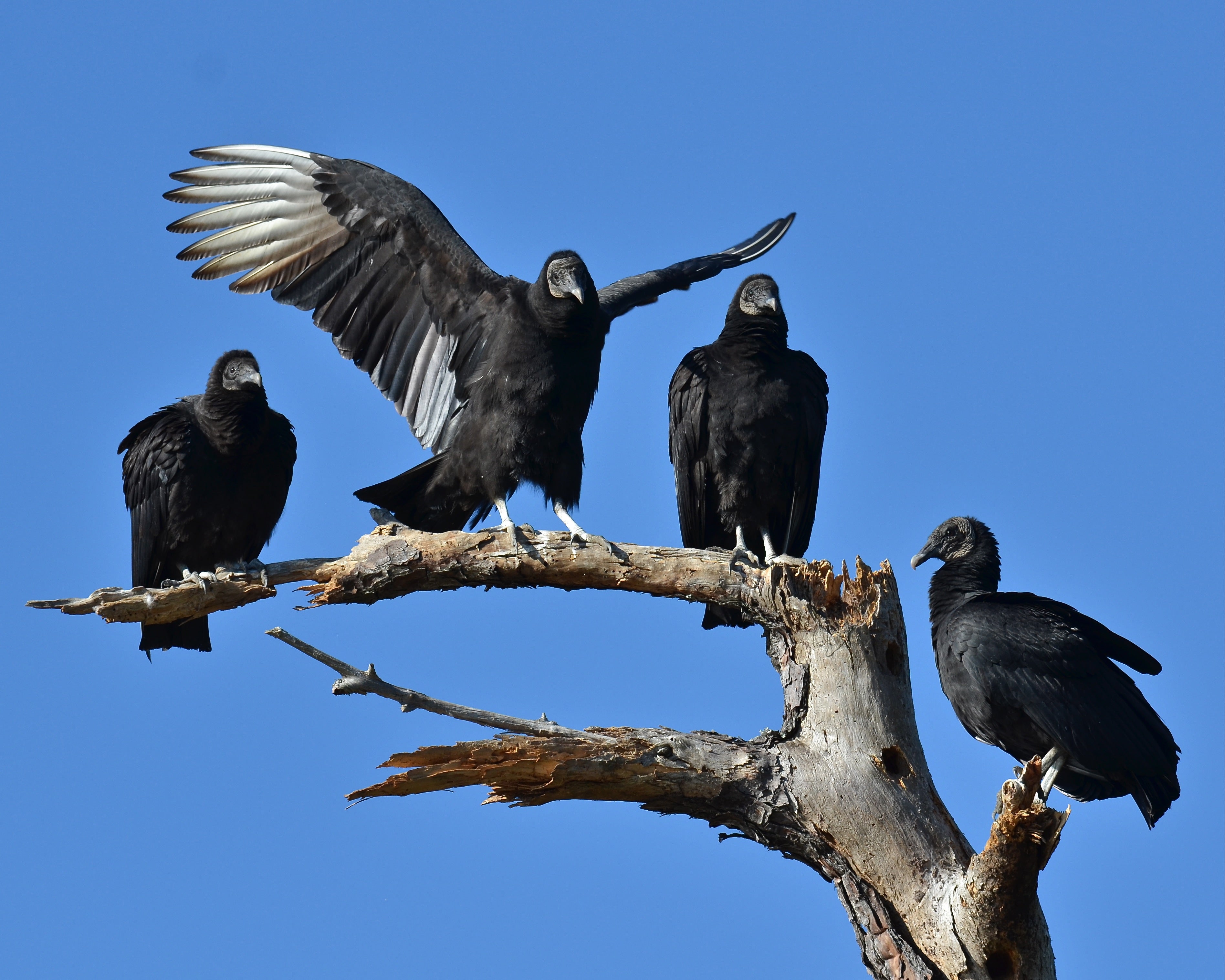The U.S. Department of Agriculture’s (USDA) Animal and Plant Health Inspection Service (APHIS) in cooperation with the Alabama Department of Conservation and Natural Resources (ADCNR) has confirmed Eurasian H5 Highly Pathogenic Avian Influenza (HPAI) in wild black vultures in Montgomery County, Alabama. This is the second confirmation of HPAI in Alabama. In February 2022, a singular case of a wild, hunter harvested American wigeon tested positive in Limestone County.
In a statement from the Alabama Department of Agriculture and Industries, State Veterinarian Dr. Tony Frazier said: “We are aware of this detection and are partnering with ADCNR to assist in response. All poultry owners and growers should be reminded to maintain strict biosecurity and to report any sick birds to our office. For more information about poultry biosecurity and how to report sick birds, please go to our website http://www.agi.alabama.gov.”
Eurasian H5 HPAI was detected in the United States in January 2022 in South Carolina and has since been detected in 48 additional states, including Alabama. HPAI H5 viruses infect the respiratory and gastrointestinal tracts of birds, can spread rapidly, and cause high mortality in infected poultry. According to the Centers for Disease Control and Prevention, the risk to humans from Eurasian H5 HPAI is low. For more information about the risk of avian influenza to humans, visit https://www.cdc.gov/bird-flu/index.html
The USDA monitors for the disease in commercial poultry operations, live bird markets, and migratory wild bird populations. Samples were collected for testing from a publicly reported die-off of black vultures in Montgomery County. Preliminary tests performed at the Mississippi Veterinary Research and Diagnostic Lab discovered the non-negative cases, which were then confirmed positive for H5 HPAI by the APHIS National Veterinary Services Laboratories in Ames, Iowa.
Wild birds can be infected with avian influenza without appearing sick. The public should avoid contact with any dead or dying bird. If contact occurs, wash your hands with soap and water and change clothing before having any contact with healthy domestic poultry and other birds. Hunters who handle wild birds should dress game birds in the field when possible and practice good hygiene to prevent any potential disease spread. Remains from processed birds can be buried where the animal was harvested or double bagged and disposed along with normal household waste.
The public is encouraged to report dead or dying bird sightings to ADCNR for collection and testing. To report a sighting, call ADCNR’s Wildlife and Freshwater Fisheries Division at (334) 242-3469.
For information regarding HPAI and domestic poultry, please contact the Alabama Department of Agriculture and Industries. Contact information is available at www.agi.alabama.gov.
ADCNR promotes wise stewardship, management, and enjoyment of Alabama’s natural resources through four divisions: Marine Resources, State Lands, State Parks, and Wildlife and Freshwater Fisheries. Learn more at www.outdooralabama.com.
###
Black Vultures Test Positive for Avian Influenza in Montgomery County

Photo by Lisa Comer





